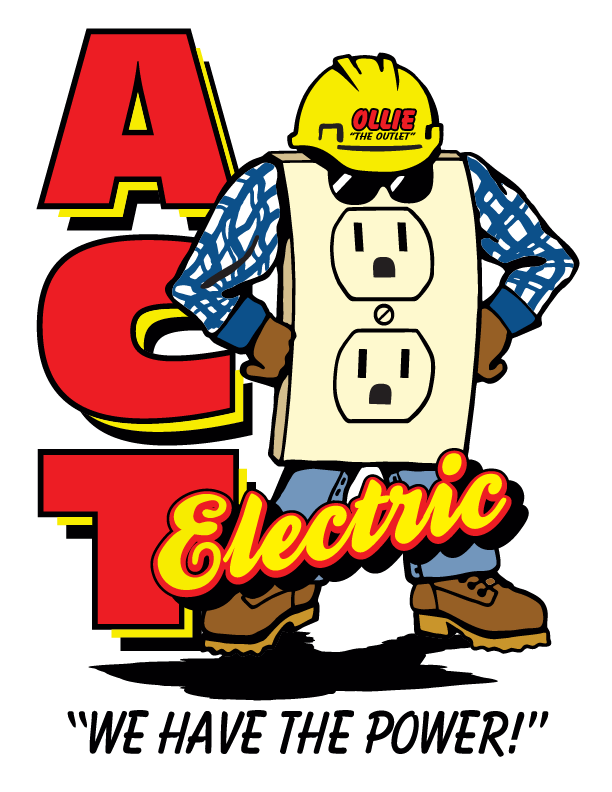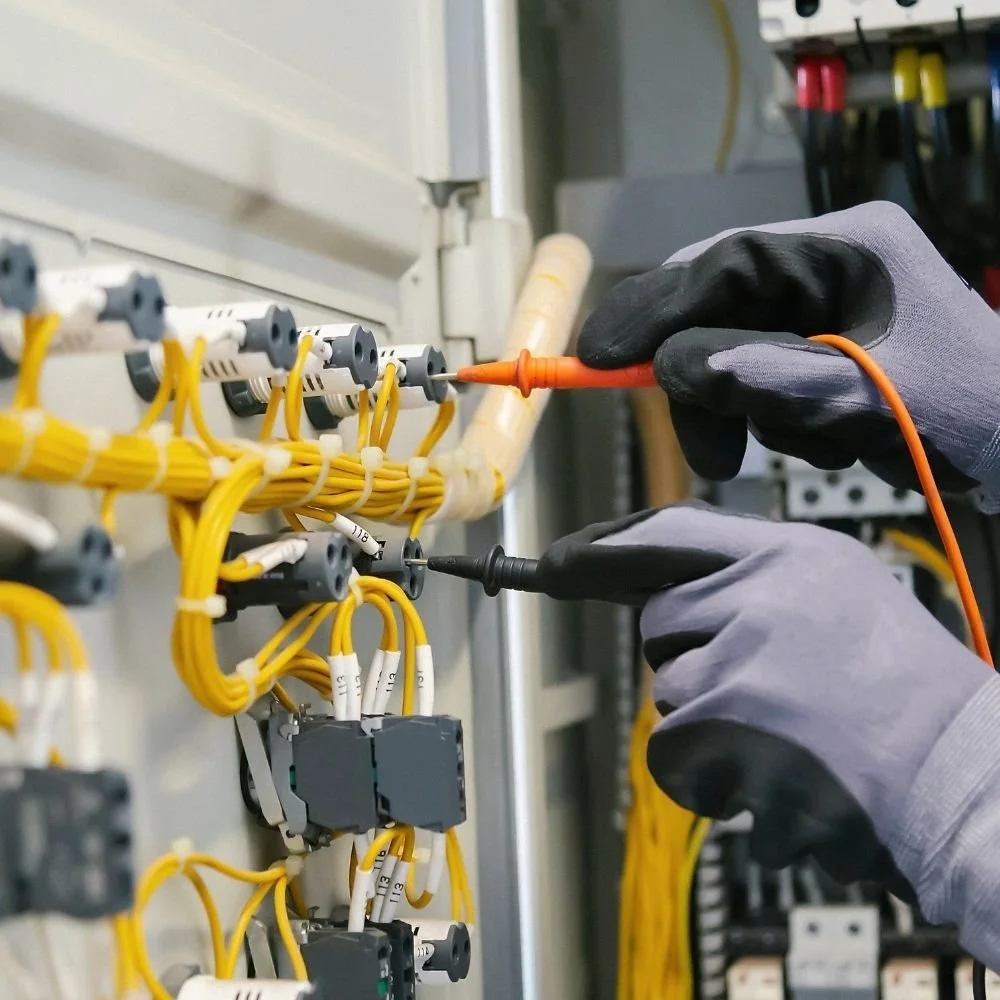Reliable Wiring, Reliable Business: Expert Commercial Electrical Services
Commercial electricians spend their days navigating blueprints, system schematics, and code compliance guidelines to ensure power moves efficiently, safely, and without interruption.
Electrical work in a commercial space isn’t just about flipping a few switches and calling it a day. It involves the kind of planning, precision, and expertise that makes accountants sigh in relief and IT teams breathe a sigh of relief. A business depends on reliable power more than it might admit. When the wiring works flawlessly, everything else can fall neatly into place—from office lighting and climate control to industrial machinery and security systems.
Commercial electricians spend their days navigating blueprints, system schematics, and code compliance guidelines to ensure power moves efficiently, safely, and without interruption. That level of behind-the-scenes brilliance doesn’t just support a business’s daily operations. It directly impacts customer satisfaction, employee productivity, and long-term profitability.
The Building Blocks Of Commercial Power Systems
Every project starts with a plan. Licensed electricians examine architectural drawings, tenant needs, load requirements, and future scalability to create a customized electrical blueprint. A retail store might need ambient lighting and secure point-of-sale power backups. A medical facility may require a layered emergency system and a grounded infrastructure to support sensitive equipment.
Professionals evaluate circuit demands, breaker placement, grounding systems, and voltage requirements before a single conduit touches drywall. They calculate everything down to the amp to prevent outages, flickering lights, or energy waste. Those details form the foundation for a smooth-running power system that withstands everyday wear, growth, and sudden demands.
Smart Layouts That Serve Growing Businesses
An office that looks empty today could be filled with new desks, servers, or machines in six months. Professional electricians plan for that possibility upfront. Instead of limiting space to its current use, they build flexibility into the electrical layout—allowing for new outlets, additional circuits, or future generator tie-ins.
In a modern workspace, devices multiply fast. Charging stations, conferencing technology, breakroom appliances, security panels, and more all pull power. Electricians know how to layer these needs strategically. Balanced circuits maintain stable performance and prevent overloading. Future access panels make upgrades easier and less intrusive. The result is a space that adapts without downtime.
Power Distribution With No Surprises
Disorganized wiring can make even the most high-tech operation feel unstable. Wires that zigzag through walls, crawl across ceilings, or trip breakers like clockwork point to poor planning. Commercial electricians maintain a clean and consistent approach.
That means symmetrical distribution panels, labeled circuits, and clear conduit pathways. They build systems that make sense—for technicians, for inspectors, and for whoever inherits the layout next. When things go wrong, service teams can quickly diagnose issues. When everything works right, no one even notices. That’s the sweet spot of professional commercial electrical design.
Energy Efficiency That Pays For Itself
Overworked equipment and inefficient wiring not only waste electricity but also wear out more quickly. Electricians bring energy-smart solutions to the table, helping businesses reduce their energy bills and extend the life of their electrical systems.
LED lighting retrofits, occupancy sensors, daylight harvesting, and smart HVAC wiring all contribute to greener operations. Load monitoring systems help track where energy is used—and where it is lost. Commercial electricians don’t just install these features. They guide business owners through options, helping them make informed decisions that strike a balance between upfront investment and long-term savings.
Safety Codes And Peace Of Mind
Few things derail a business faster than an electrical fire or failed inspection. Professional electricians are familiar with the codes inside and out—not just the national ones, but also local variations and industry-specific guidelines.
In a restaurant, that might mean wiring that isolates kitchen systems from customer-facing ones. In a warehouse, this could include explosion-proof wiring or grounded systems that prevent sparks from occurring around combustible materials. Safety isn’t an afterthought—it’s part of every outlet, breaker, and panel installed. When wiring is done correctly, insurance claims remain low, and inspection reports remain clean.
Backup Systems That Work When They’re Needed Most
Losing power in a commercial building doesn’t just leave people in the dark; it also disrupts operations and causes significant financial losses. It can shut down production lines, wipe out digital records, and cause security lapses. Electricians design and install backup systems that protect what matters when the grid goes quiet.
That includes uninterruptible power supplies (UPS), transfer switches, and full generator setups. Each piece gets sized to meet specific needs, from powering a few lights and routers to keeping entire networks online. These systems aren’t plug-and-play. They’re custom-engineered, carefully tested, and regularly maintained by professionals who know exactly what’s at stake.
Lighting Design That Does More Than Illuminate
Commercial lighting has a job to do—and often more than one. It should brighten a space, highlight features, support safety, and reflect the brand. Professional electricians collaborate with designers, architects, and property managers to deliver lighting that checks all those boxes.
In a boutique, that might mean spotlighting products without overheating display areas. In a corporate setting, it could involve layering ambient and task lighting to reduce eye strain. No matter the space, lighting gets wired to perform, not just glow.
Low Voltage, High Impact
Security systems, access controls, data lines, fire alarms, and intercoms don’t need high voltage to make a big difference. But they do need expert installation. Low-voltage work demands finesse and precision. Electricians route these systems with the same care as their high-voltage counterparts.
Cabling gets protected against interference. Devices are placed for optimal function. And integration with other systems, such as HVAC or security, is seamless. These features may be hidden behind ceilings or walls, but they’re part of the backbone of modern commercial spaces.
Troubleshooting Without Guesswork
When a system flickers, buzzes, or crashes, professional electricians don’t rely on trial and error. They use diagnostic tools, schematics, and experience to find the source quickly. Maybe it’s a breaker drawing too much current. Maybe a poorly terminated wire is causing a data drop. Whatever the issue, it’s resolved with skill and clarity.
Clear communication matters here. Business owners deserve to know what went wrong, how it’s being fixed, and what to expect moving forward. A good electrician delivers answers—not guesswork, not shrugs, and definitely not band-aid fixes.
Maintenance That Protects The Bottom Line
An electrical system can run smoothly—until dust, vibration, and time start affecting connections. Regular maintenance helps catch small concerns before they escalate into major outages. Loose terminals, overloaded circuits, and aging breakers get flagged and fixed during routine visits.
Commercial electricians establish maintenance schedules that align with the environment. A data center might need quarterly testing. A retail store may do fine with annual checkups. Either way, proactive care always beats emergency repairs.
Documentation That Saves Time And Stress
Professional electricians don’t just install systems—they document them. That means wiring diagrams, breaker panel maps, inspection records, and service logs that make future upgrades or troubleshooting far easier. Good documentation is the cheat sheet every facility manager wishes they had. It prevents headaches and reduces downtime.
Training That Supports In-House Teams
Sometimes, businesses have their maintenance crew. Electricians can train these teams to handle basic electrical tasks safely and confidently. That might include flipping the right breaker, resetting a GFCI outlet, or identifying early signs of equipment trouble. That kind of knowledge keeps small issues from turning into panic-inducing emergencies.
Electrical Systems That Scale With the Home
Today’s setup might not match tomorrow’s needs. Whether it’s a new product line, a larger team, or a comprehensive facility upgrade, electrical systems should scale up without starting from scratch. Professional electricians build in that flexibility—extra conduit runs, spare panel capacity, modular switchgear—so the next big leap doesn’t need to be a nightmare.
Collaboration That Keeps Projects On Track
New construction, tenant improvements, and retrofits involve more than wiring. Electricians work closely with architects, general contractors, plumbers, and HVAC pros to coordinate every phase. When everyone’s on the same page, timelines stay tight, costs stay in line, and the final product shines.
Future-Proofing With Thoughtful Technology
Technology moves quickly. Businesses that want to keep pace need infrastructure that won’t slow them down. Commercial electricians guide clients toward scalable, future-ready solutions—like power-over-ethernet lighting, digital switchboards, and smart monitoring systems. These features provide businesses with the flexibility to evolve without having to overhaul their systems completely.
Tailored Solutions For Every Industry
Electrical needs don’t look the same across the board. Restaurants worry about refrigeration and fire suppression. Warehouses think in terms of forklifts and LED bays. Offices prioritize connectivity and energy efficiency. Electricians tailor every solution to the environment they’re working in, not some cookie-cutter template.
No one-size-fits-all fixes. Just sharp minds, skilled hands, and a deep understanding of how power drives business forward.

